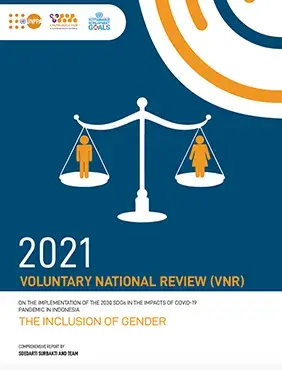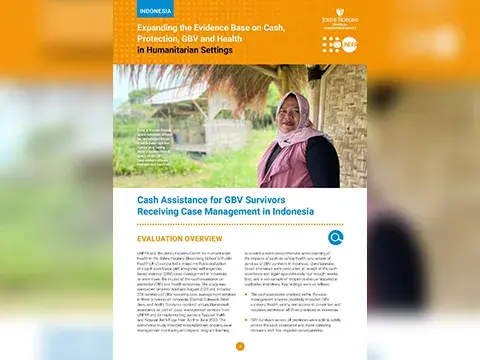The term “planet 50:50” can be implemented in indonesia as “Indonesia 50:50” in view of the nearly equal composition of males and females, namely 50% and 50%. With the ratio based on 2020 population census being 102, it is hoped that women and men have joint roles and are involves in development. If one party is left behind, be it male or female, in development it would mean that 50% of the population is left behind and this would become a reducing factor in achieving the objectives of development. Gender imbalance or inequality is the APKM or unequal access (A) in, or the opportunities between men and women to obtaining resources in development, thereby having an impact on the balance of participation (P) and control (K) of the respectively, causing differences between the two in obtaining the benefits (M) of the results of development. Efforts to eradicate, or at least reduce gender imbalance in APKM has been done in order to achieve gender equality or justice. For such purpose, the government used the gender mainstreaming (pengarusutamaan gender or PUG) approach through INPRES No. 9 Year 2000. At each stage of development, beginning from planning, implementation and management up to the monitoring and evaluation stage, the interests, aspirations and conditions of men and women must be integrated. There are at least two urgent issues serving as the objective in this approach, namely, first and foremost, that men and women would both determine policy and secondly both would benefit from the results of development. Although such report is intended to support the development and drafting of the VNR Indonesia 2021 report, it is hoped that it would describe the developments of a small part of APKM in several important targets for sustainable development goals (TPB or SDGs) after around 15 years PUG has been launched. Data trends being discussed is also related to female headed households and female population compared to men on the same issues from 2015/2016 up to 2020. The analysis of gender-based differences due to the Covid-19 impact is also discussed.
What we do
2021 Voluntary National Review (VNR): THE INCLUSION OF GENDER

Publisher
UNFPA, Bappenas, Knowledge Hub Kesehatan Reproduksi Indonesia
Number of pages
79
Author
UNFPA, Bappenas, Knowledge Hub Kesehatan Reproduksi Indonesia
Publication
2021 Voluntary National Review (VNR): THE INCLUSION OF GENDER
Publication date
21 March 2022
Latest
Publications
07 December 2023




